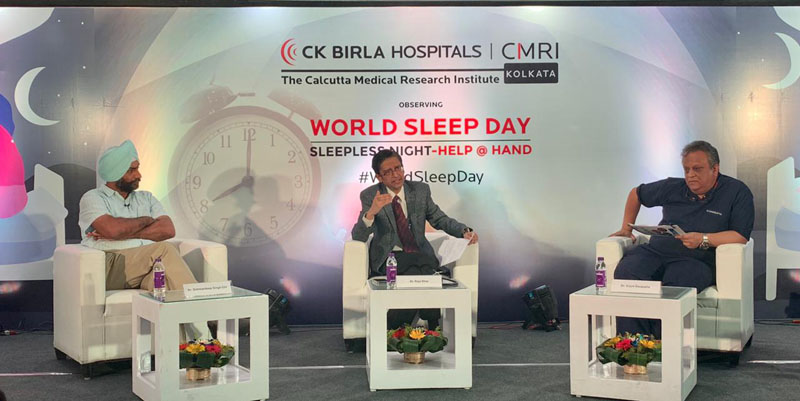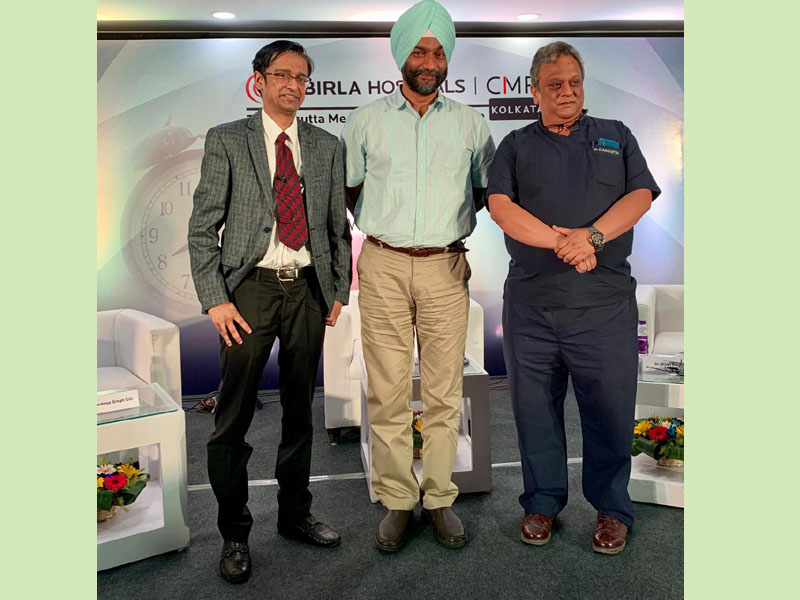 World Sleep Day
World Sleep Day
Sleeping pills lead to memory loss over a longer period: CMRI experts on World Sleep Day
Kolkata/IBNS: At least four percent of India's 1.3 billion population suffer from obstructive sleep apnea, according to doctors at the CMRI Hospital in Kolkata on the World Sleep Day.
People do not focus on something which is as vital as sleep, which is why observing World Sleep Day is just as significant and important as any other, said doctors at the CK Birla Hospitals which hosted a session today to address issues related to sleep disorders.
The session was presided by Dr. Raja Dhar, Director & HOD, Department of Pulmonology, CMRI & Dr. Arjun Dasgupta, Department of ENT-Otolaryngology, CMRI.
They said disorders like hypertension, heart diseases, COPD are considered to be real diseases whereas sleep related problems take a back seat. However, people do feel that this is part and parcel of modern day living; a small price to pay for the urbanization that has occurred throughout the world and hence do not complain as much. So, unless doctors and healthcare workers highlight such issues it remains ignored.
The primary focus of the event was Obstructive Sleep Apnea (OSA).
Dhar mentioned that he was suffering from insomnia and finds it hard to overcome it given his hectic work life which makes him dependent on sleeping pills.
“Doctors need to be very careful when they prescribe sleeping pills as they are only a short term solution, which lead to loss of memory over a longer duration.”
“Most blind people take sleeping pills as they are not exposed to any visual stimulation, therefore counselling is a way to help them,” mentioned Dhar.

Explaining OSA, one of the doctors said, “OSA may be a risk factor for the development of other medical conditions. High blood pressure (hypertension), heart failure, heart rhythm disturbances, atherosclerotic heart disease, pulmonary hypertension, insulin resistance, and even death are some of the known complications of untreated obstructive sleep apnoea.”
A OSA misconception was cleared when Dr. Dhar mentioned, “We know that it is obese people who mainly get sleep apnea. However, we now know 25% of people with OSA have normal BMI. So, it is not the people, who are obese, it is the entire population we are targeting.”
Informing further, doctors said the issue with OSA is that the airway collapses during night leading to a narrowed airway and hence the flow of the air from the outside to the inside stops during the night. This happens multiple times, often even more than once in a minute.
Dr Arjun Dasgupta offering a solution to OSA said, “We put a mask onto the face, mainly over the nose driving the air in and splitting the airway open throughout the night. “
“Hence, the dropping of the oxygen level during the night reduces, the breathing stabilizes, people sleep better, the snoring goes away and most importantly the metabolic complications, the hypertension, the diabetes, and the heart attack, stroke etc. gets controlled in a much better way.”
(Reporting By Nitin Waghela)
Support Our Journalism
We cannot do without you.. your contribution supports unbiased journalism
IBNS is not driven by any ism- not wokeism, not racism, not skewed secularism, not hyper right-wing or left liberal ideals, nor by any hardline religious beliefs or hyper nationalism. We want to serve you good old objective news, as they are. We do not judge or preach. We let people decide for themselves. We only try to present factual and well-sourced news.







